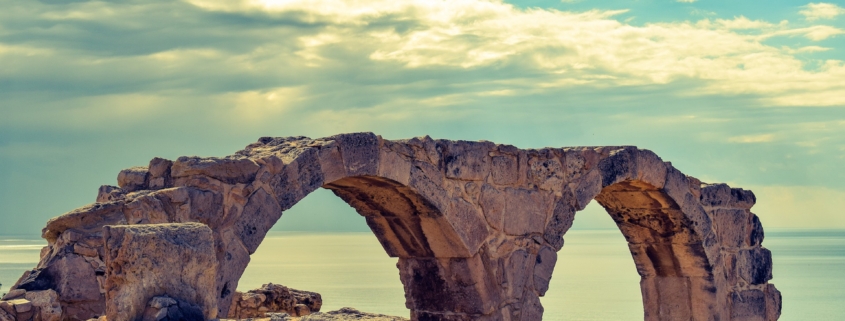ARCHON CONFERENCE: You win some, you lose some – but what are we winning and losing? – 12 May 2023
ARCHON CONFERENCE: You win some, you lose some – but what are we winning and losing?
Strengthening specialist expertise in archaeology in the Netherlands
Date: 12 May 2023
Location: Sonnenborgh museum & sterrenwacht, Terreplein, Zonnenburg 2 Utrecht.
Credits: 1 ECT
Abstract
Archaeology is a rapidly changing and expanding field. One the one hand, new areas of know-how have found their place in research and teaching, such as isotope studies, geochemical analysis, aDNA and advanced computing methods. Clearly, this knowledge is necessary to tackle present-day research questions that are ever more complex and sophisticated. On the other hand, we witness that all kinds of ‘traditional’ knowledge and specializations, like ceramology, archaeobotany, zooarchaeology or geoarchaeology, are waning or even disappearing – in the Netherlands as well as in neighbouring countries. A related problem concerns the disappearance or near-extinction of ‘period-specific’ archaeologies at Dutch universities, such as the archaeology of pre-Roman Italy or medieval archaeology. This leads to a situation in which students graduate without sufficient knowledge of specific periods or finds categories which in turn has a negative effect on the quality of field research and fields reports. In the long run this leaves us without specialists capable of writing synthesizing studies.
With this one-day ARCHON conference we aim to inventorize the current situation, explicitly addressing the question what we are winning and losing. We want to discuss the effects this has for different players in the field (academics, students, specialist practitioners, contract-based archaeologists, heritage managers etc.). We wish to look back to the situation in the past, but also towards the future and try to estimate what is needed for a sustainable archaeological discipline. What specialisms are our core strengths, where is need for improvement, and what action needs to be taken in order to keep Dutch archaeology at the forefront of 21st century research, as well as serve current societal needs?
In anticipation of the discussion during the symposium we want to identify a number of facets of this problem:
New generation of academics: At universities several specialist labs have been reduced and staff has been laid off or retired, to the extent that for instance expertise in the material culture of specific time periods is now at risk (see e.g. Hessing et al. 2022).What does this mean for the training of future generations of students and, through them, for the future of our discipline?
Position of specialist practitioners: Currently, certain archaeological expertise is found exclusively with a limited number of specialist practitioners working in commercial or administrative contexts. This has both advantages and disadvantages. One of the disadvantages is that outside an academic environment it is more difficult to share and develop knowledge and expertise – for instance, when students wish to acquire this specialist knowledge. Besides, the limited number of skilled practitioners and allocation of resources in Dutch archaeology makes it difficult for researchers to set up effective collaborations. It also has repercussions down the line for early career researchers who want to pursue a particular line of research. This situation may not alter soon, but it urges us to think about solutions to bridge this gap between specialist practitioners in and outside academia.
Policy making: The funding of academic research has a strong focus on cutting-edge research performed by excellent researchers. The short term effect is that there is no base funding anymore for the ‘traditional’ branches of our discipline. In the long run, it means that academics representing these traditional disciplines are gradually replaced by scholars who cover a particular niche but not the wider field of archaeology. Archaeology does not stand alone in this: it is part of a wider problem especially within the Humanities (think, for instance, of the near extinct discipline of palaeography in the historical sciences). This raises the question how to raise awareness of this with policy makers? Should responsibility be taken at a higher level to counterbalance this development, for instance by NWO, the Ministry of Education or universities?
Speakers
Speakers with various backgrounds or positions in the field of archaeology will share their thoughts on the current situation, identify threats, challenges and possibilities, and make suggestions for improvement. Presentation will be divided in a morning and afternoon session; both sessions will be followed by discussion.
Goal and deliverables
During the conference there is ample time to exchange thoughts about the topic. However, especially in the final discussion we should arrive at a number of recommendations how we can safeguard existing or future specializations by means of collaboration, division of tasks etc. This in its turn has to lead to a policy paper that captures ARCHON’s standpoint on this matter and that will be published on the ARCHON website and shared with decision makers including the College of Deans of the humanities faculties and NWO.
Preliminary program
09:30-10:00 Registration with coffee/tea
10:00-10:20 Opening by Philip Verhagen and Jan Paul Crielaard
Session I: The academic perspective 10:20-13:00
10:20-10:35 Radboud University – Astrid van Oyen
10:35-10:50 University of Amsterdam – Jill Hilditch
10:50-11:05 Utrecht University – Leonard Rutgers (by Kim Cohen)
11:05-11:30 Coffee/tea break
11:30-11:45 University of Groningen – Lidewijde de Jong
11:45-12:00 Vrije Universiteit Amsterdam – Jan Paul Crielaard
12:00-13:00 Panel discussion – led by Ivo van Wijk
13:00-14:00 Vegetarian lunch (provided by ARCHON)
Session II: The professional field (14:00-14:40)
14:00-14:20 Specialist practitioners – Julie van Kerckhove
14:20-14:40 Contract-based archaeological companies – Wilfried Hessing
14:40-15:00 Coffee/tea break
Session III: Policy makers (15:00-16:30)
15:00-15:30 RCE – Jos Bazelmans (by Philip Verhagen)
15:30-15:45 Leiden University – Jan Kolen
15:45-16:30 Roundtable discussion – led by Gert Jan van Wijngaarden
16:30 Drinks (provided by ARCHON)


